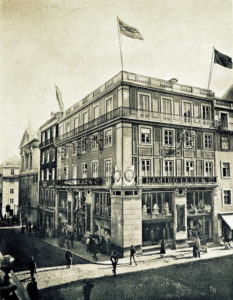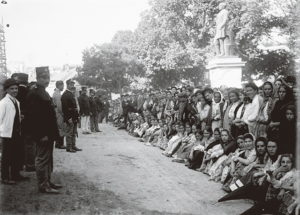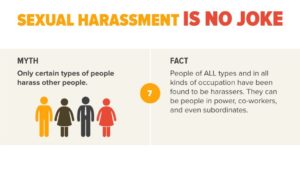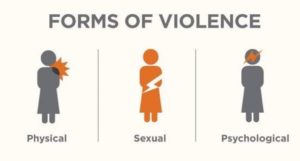‘A country that hesitates over the care of those giving birth is a country without direction’.

The crisis hitting Obstetric services in Portugal drags on this summer with limited services and even straightforward closures of State (National Health Service) Maternity Units during the weekends, including hospitals of reference in the Greater Lisbon area.
Pregnant women either make do on their own or have to go to private hospitals, where more than half of the doctors specializing in obstetrics are working.

The country’s tabloid Correio da Manhã commented that ‘something is wrong in a country with a shrinking population, that cannot guarantee the minimum conditions for its babies to be born safely and obliges pregnant women with obstetric emergencies to travel irresponsibly long distances because the closest maternity bloc is closed due to lack of doctors.
The reason for the public consternation was the recent loss of a baby whose 41-year-old mother in labor was forced to travel 100 km before reaching a functioning maternity hospital.

The Nurses’ Order and the NGO Observatory for Obstetric Violence are urging the Health Minister Martha Temido to put in place the European directive to give specialist nurses – who have the skills required to oversee low-risk pregnancies in primary care centers – the autonomy they are calling for, at the same time reducing the total dependence on hospital care.
There are currently 3,182 specialist nurses whose potential is being wasted in this regard.

The lack of medical specialists and obstetric care is not only affecting perinatal care but also maternal mortality, which has reached its highest level since 1982. Last year – with 85,000 live births – 17 pregnant women died due to complications of pregnancy ( 8 during pregnancy, 1 during childbirth, and 8 within six weeks after delivery). Thirteen occurred in hospital, a mere 3 were 40 years or older.

Moreover, instrumental vaginal birth (with help of a vacuum extractor or forceps) is three times (31%) higher in Portugal than the European average (11%). Episiotomies (incisions made in the perineum to enlarge the birth canal) are also more frequent and amount to 41%, twice the European average (20%).

These are the main conclusions of a European study including more than 21.000 women from 12 countries and published in the February issue of The Lancet Regional Health – Europe.
‘We have an exacerbated use of the these unnecessary practices similar to countries with a poor quality of care’, declared Raquel Costa, one of the researchers at the Institute of Public Health at the University of Porto.
Enjoy the week Boa semana (pic Público/Sapo)














 In the heart of Lisbon – on the Santana hill between the Travessa da Pena and the Beco de São Luis – used to be the clothing manufactory of Ramiro Leão.
In the heart of Lisbon – on the Santana hill between the Travessa da Pena and the Beco de São Luis – used to be the clothing manufactory of Ramiro Leão. Ramiro Leão (1857-1934), born in Gavião moved young to the capital, where he became one of the most powerful merchants and founder of the cosmopolitan warehouse Ramiro Leão & Co (nowadays United Colors of Benneton) in the glamorous Chiado neighbourhood.
Ramiro Leão (1857-1934), born in Gavião moved young to the capital, where he became one of the most powerful merchants and founder of the cosmopolitan warehouse Ramiro Leão & Co (nowadays United Colors of Benneton) in the glamorous Chiado neighbourhood. Since the old factory broke down, it experienced a complete facelift and is nowadays a graceful blue eye-catcher in the skyline of Lisbon with nine apartments, a lush Mediterranean garden and a magnificent city view.
Since the old factory broke down, it experienced a complete facelift and is nowadays a graceful blue eye-catcher in the skyline of Lisbon with nine apartments, a lush Mediterranean garden and a magnificent city view. In protest against this dismissal, a massive strike takes place the next day outside the gates of the factory. The strikers look for Ramiro Leão but he refuses to recognize the Union and its members. The peaceful protest lasts about four and a half hours and is finally swept away by military force.
In protest against this dismissal, a massive strike takes place the next day outside the gates of the factory. The strikers look for Ramiro Leão but he refuses to recognize the Union and its members. The peaceful protest lasts about four and a half hours and is finally swept away by military force.
 ‘As long as our society maintains its patriarchal and male chauvinist features, aggression against women is legitimized’, says Elisabeth Brasil of the Assassinated Women’s Observatory (OMA), accusing the government of not providing the necessary support to the victims of
‘As long as our society maintains its patriarchal and male chauvinist features, aggression against women is legitimized’, says Elisabeth Brasil of the Assassinated Women’s Observatory (OMA), accusing the government of not providing the necessary support to the victims of  The legal system doesn’t seem to be very woman-friendly either and courts often continue to disclaim the perpetrators and hold the victims accountable. Only
The legal system doesn’t seem to be very woman-friendly either and courts often continue to disclaim the perpetrators and hold the victims accountable. Only  In the meantime, the government becomes convinced that the legislation on sexual crimes needs to be reviewed in the light of the
In the meantime, the government becomes convinced that the legislation on sexual crimes needs to be reviewed in the light of the  But not only the Portuguese legislation is inadequate on women abuse, maintaining a culture of blaming the victim and perpetuate impunity.
But not only the Portuguese legislation is inadequate on women abuse, maintaining a culture of blaming the victim and perpetuate impunity.  In Portugal verdienen vrouwen – evenals in de meeste andere Europese lidstaten – voor hetzelfde werk 16,5% minder dan mannen. Dit betekent in feite dat vrouwen twee maanden per jaar voor niets werken!
In Portugal verdienen vrouwen – evenals in de meeste andere Europese lidstaten – voor hetzelfde werk 16,5% minder dan mannen. Dit betekent in feite dat vrouwen twee maanden per jaar voor niets werken! Ook binnen het gezin is er nog weinig vooruitgang geboekt en besteden vrouwen per dag gemiddeld ruim anderhalf uur meer aan huishoudelijke taken dan mannen.
Ook binnen het gezin is er nog weinig vooruitgang geboekt en besteden vrouwen per dag gemiddeld ruim anderhalf uur meer aan huishoudelijke taken dan mannen. De socialistische regering – die ongelijkheid in beloning wil uitbannen – heeft aangekondigd dat bedrijven, die vrouwen minder betalen, riskeren contracten bij de overheid mis te lopen. Met de vertegenwoordigers van de ‘booming’ schoenenindustrie – die 95% van haar productie exporteert en waar 60% van de werknemers vrouw is – werd onlangs een historisch akkoord gesloten over gelijke beloning voor mannen en vrouwen.
De socialistische regering – die ongelijkheid in beloning wil uitbannen – heeft aangekondigd dat bedrijven, die vrouwen minder betalen, riskeren contracten bij de overheid mis te lopen. Met de vertegenwoordigers van de ‘booming’ schoenenindustrie – die 95% van haar productie exporteert en waar 60% van de werknemers vrouw is – werd onlangs een historisch akkoord gesloten over gelijke beloning voor mannen en vrouwen.